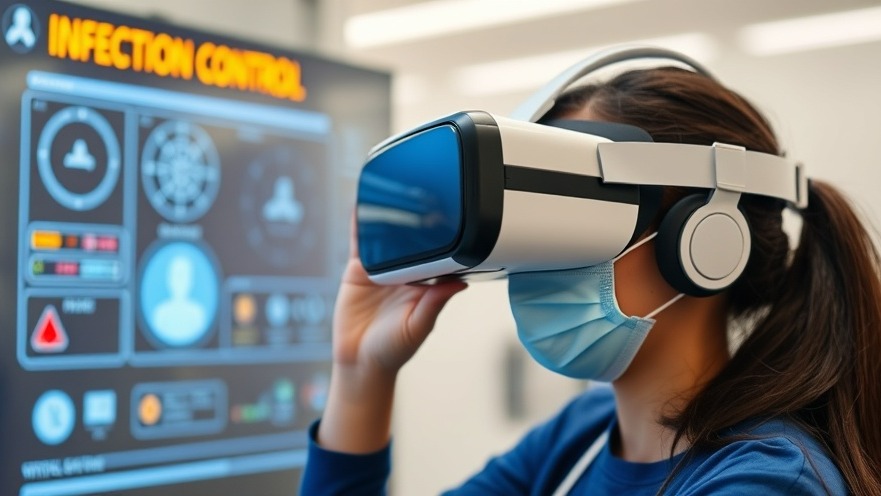
Revolutionizing Infection Control Training
In the healthcare arena, the stakes are high when it comes to cleanliness and infection control. A new virtual reality (VR) training tool developed by Mass General Brigham is setting a new standard for training healthcare professionals. With infection control critical for patient safety, this innovative tool aims to minimize the risk of health care-associated infections by immersing physicians in realistic training scenarios about cleaning and disinfecting portable medical equipment.
Understanding the Current Challenges
The statistics surrounding health care-associated infections are alarming: it is estimated that these infections affect 1 in 31 patients, leading to nearly 100,000 deaths annually. Moreover, a staggering $28.4 billion is spent on direct medical costs related to these infections. Despite the potential for up to 75% of these infections to be prevented through effective practices, the reality is that between 25% to 100% of portable medical equipment is often contaminated, leading to community-spread infections.
A New Era in Training with VR
The VR module developed by Erica S. Shenoy, MD, Ph.D., incorporates gamification techniques to better engage learners and ensure deeper understanding and retention of crucial infection control concepts. By simulating a hospital environment with head-mounted displays, clinicians can visualize the invisible threats posed by germs and contaminants that linger on commonly used devices like blood pressure cuffs and ultrasound machines.
The Power of Immersive Learning
The immersive VR experience allows clinicians to see and interact with simulated pathogens in a controlled environment, providing valuable hands-on experience that traditional training methods often lack. By guiding users through real-life scenarios, the training module helps reinforce the importance of meticulous cleaning and disinfection protocols that can significantly reduce the risks presented by portable medical devices in clinical settings.
Improving Patient Safety and Staff Competency
By effectively educating healthcare practitioners, the potential ripple effects on patient safety are profound. This approach not only increases competency among staff but also helps change the culture of infection control within healthcare facilities. This immersive training has been tested at seven facilities across the United States, and initial feedback from participants suggests a marked improvement in understanding and implementation of infection control practices.
Contrast With Traditional Training Approaches
Conventional methods of teaching infection control practices often lack the engagement necessary for effective learning. Shenoy highlights that the typical way of teaching has failed to resonate with healthcare workers, leading to inconsistent practices that can jeopardize patient health. This new VR tool addresses that gap directly and represents a much-needed evolution in training methodologies.
Future Implications and Broader Applications
The implications of this VR training tool extend beyond just infection control. The success of this initiative could pave the way for similar innovations across various domains in healthcare training. As technology continues to disrupt traditional approaches, investments in VR training solutions could improve personnel preparedness for handling a wide range of clinical scenarios, ultimately advancing patient care.
In Summary: Why It Matters
For concierge health practitioners aiming to stay at the forefront of medical advancements, understanding tools like this VR training module is essential. By embracing such technology, healthcare professionals can instill greater confidence in their ability to prevent infections and thus enhance the safety of their patients. The success of this training approach may very well revolutionize how infection control—and perhaps larger aspects of healthcare training—is approached in the future.
To stay updated with the latest technologies in healthcare that can positively impact patient outcomes, it is crucial for practitioners to follow developments in this area. This initiative represents not just a solution to a pressing issue but also a beacon for future advancements in medical education.
 Add Row
Add Row  Add
Add 




Write A Comment